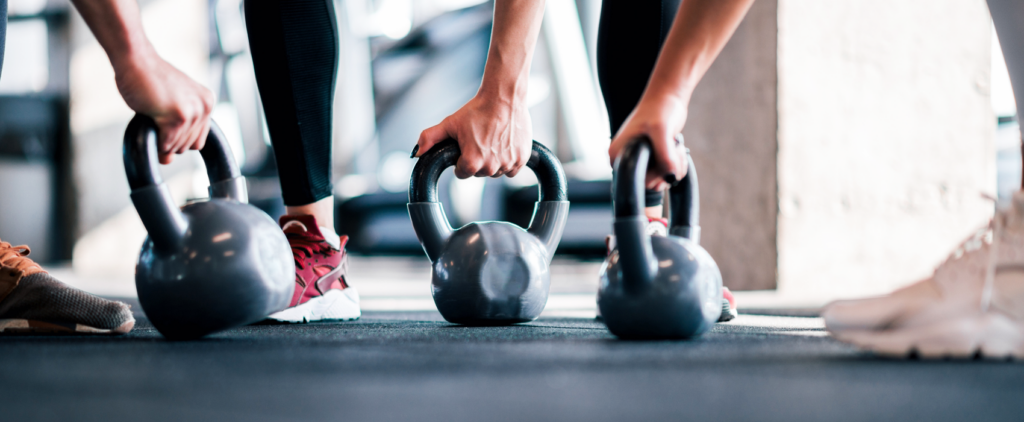THREE SIMPLE STEPS TO LOSING WEIGHT, BASED ON SCIENCE

As 2020 approaches, many of the Revolutionaries out there will search for ways to lose their holiday weight fast. However, most of them will find that losing weight fast may not necessarily be the healthiest way to lose weight. It might make them hungry and unsatisfied because if you don’t have the iron willpower, then hunger will cause you to give up on these quick fixes fast. The 3 steps outlined here will reduce your appetite significantly, make you lose weight without making you hungry, and improve your metabolic health at the same time.
1. Cut Back On Sugars And Starches.
This is the most important part. When you do this, your hunger level goes down and you end up eating much fewer calories (1). Another benefit of cutting carbs is that it lowers insulin levels, causing your kidneys to shed excess sodium and water out of your body. This reduces bloating and unnecessary water weight (2,3). Cutting carbs will help not only help you eat fewer calories, but it will put fat loss on autopilot.
2. Eat Protein, Fat and Vegetables.
Each one of your meals should include a protein source, a fat source, and low-carb vegetables. Creating meals this way will automatically bring your carb intake into the recommended range of 20-50 grams per day. The importance of eating plenty of protein cannot be overstated. This will help you boost metabolism by 80-100 calories per day (4,5). High protein diets can also reduce cravings and desire for late-night snacks by 50-60% (6,7). Protein is the king of nutrients.
Don’t be afraid to load your plates with low-carb vegetables such as broccoli, cauliflower, spinach, tomatoes, kale, brussels sprouts, cabbage, swiss chard, cucumbers, etc . You are wanting to aim for 20-50 net carbs per day. A diet based mostly on protein and low-carb vegetables contains all of the fiber, vitamins, and minerals, you need to be healthy.
Some examples of healthy fat sources include olive, coconut, or avocado oil and butter. Don’t be afraid of eating fat. Trying to do both low fat and low carb is a recipe for disaster as it will make you feel miserable and hungry.
3. Lift Weights 3 Times Per Week.
You don’t need to exercise to lose weight, but it is highly recommended. The best option is to do some warm ups and lift some weights. If you are new to a gym, ask a trainer for some advise and or support to minimize any injuries. By lifting weights, you burn a lot of calories and prevent your metabolism from slowing down, which is a common side effect of losing weight. (8,9). If lifting weights is not an option for you, then doing some cardio workouts like walking, jogging, running, cycling or swimming will suffice.
It is not necessary to count calories as long as you keep the carbs very low and stick to protein, fat and low-carb vegetables. The main goal again is to keep your carbs under the 20-50 grams per day and get the rest of your calories from protein and fat. Additionally, it is important to eat a high protein breakfast, avoid sugary drinks/juices, drink lots of water half hour before meals, eat soluble fiber, eat mostly whole, unprocessed foods, and get a good nights sleep, every night.
Medically, you should see these improvements: lowered blood sugar, lowered triglycerides, lowered LDL, lowered blood pressure, and increased HDL. However, you should always check with your medical provider before starting any diet and exercise routine. Kintsugi Physical Therapy can help start you on your path in 2020 towards your weight loss goals.
- McClernon, F., Yancy Jr, W., Eberstein, J., Atkins, R., Westman, E. (2012); The Effects of a Low-Carbohydrate Ketogentic Diet and a Low-Fat Diet on Mood, Hunger, and Other Self-Reported Symptoms; Obesity; Vol. 15: Issue 1.
- Tiwari, S., Riazi, S., Ecelbarger, C. (2007); Insulin’s impact on renal sodium transport and blood pressure in health, obesity, and diabetes; Renal Physiology; Vol. 293: Issue 4. pp
- Hernandez TL, et al (2010); Lack of suppression of circulating free fatty acids and hypercholesterolemia during weight loss on a high-fat, low-carbohydrate diet; Am J Clin Nutr; Vol. 91: Issue 3. pp578-585.
- Veldhorst, M., Westerterp-Plantenga, M., Westerterp, K. (2009); Gluconeogenesis and energy expenditure after a high-protein, carbohydrate-free diet; Am J Clin Nutr; Vol 90: Issue 3. pp519-526.
- Johnston CS, et al (2002); Postprandial thermogenesis is increased 100% on a high-protein, low-carbohydrate, low-fat diet versus a high-carbohydrate, low-fat diet in healthy, young women; J Am Coll Nutr; Vol 21: Issue 1. pp55-61.
- Leidy, HG, Tang, M, Armstrong, CL, Martin, CB, Campbell, WW (2011); The effects of consuming frequent, higher protein meals on appetite and satiety during weight loss in overweight obese men; Obesity; Vol 19: Issue 4 pp 818-824.
- Weigle, D., Breen, P., Matthys, C., Callahan, H., Meeuws, K., Burden, V., Purnell, J. (2005); A high-protein diet induces sustained reductions in appetite, ad libitum caloric intake, and body weight despite compensatory changes in diurnal plasma leptin and ghrelin concentrations; Am J Cl Nutr; Vol 82: Issue 1. pp41-48.
- Hunter GR, Byrne NM, Sirikul B, Fernandez JR, Zuckerman PA, Darnell BE, Gower BA, (2008); Resistance training conserves fat-free mass and resting energy expenditure following weight loss; Obesity; Vol. 16: Issue 5. pp 1045-1051.
- Hunger GR, Fisher G, Neumeier WH, Carter SJ, Plaisance EP; (2015); Exercise training and energy expenditure following weight loss; Med Sci Sports Exer; Vol. 47. Issue 9. pp. 1950-1957.
